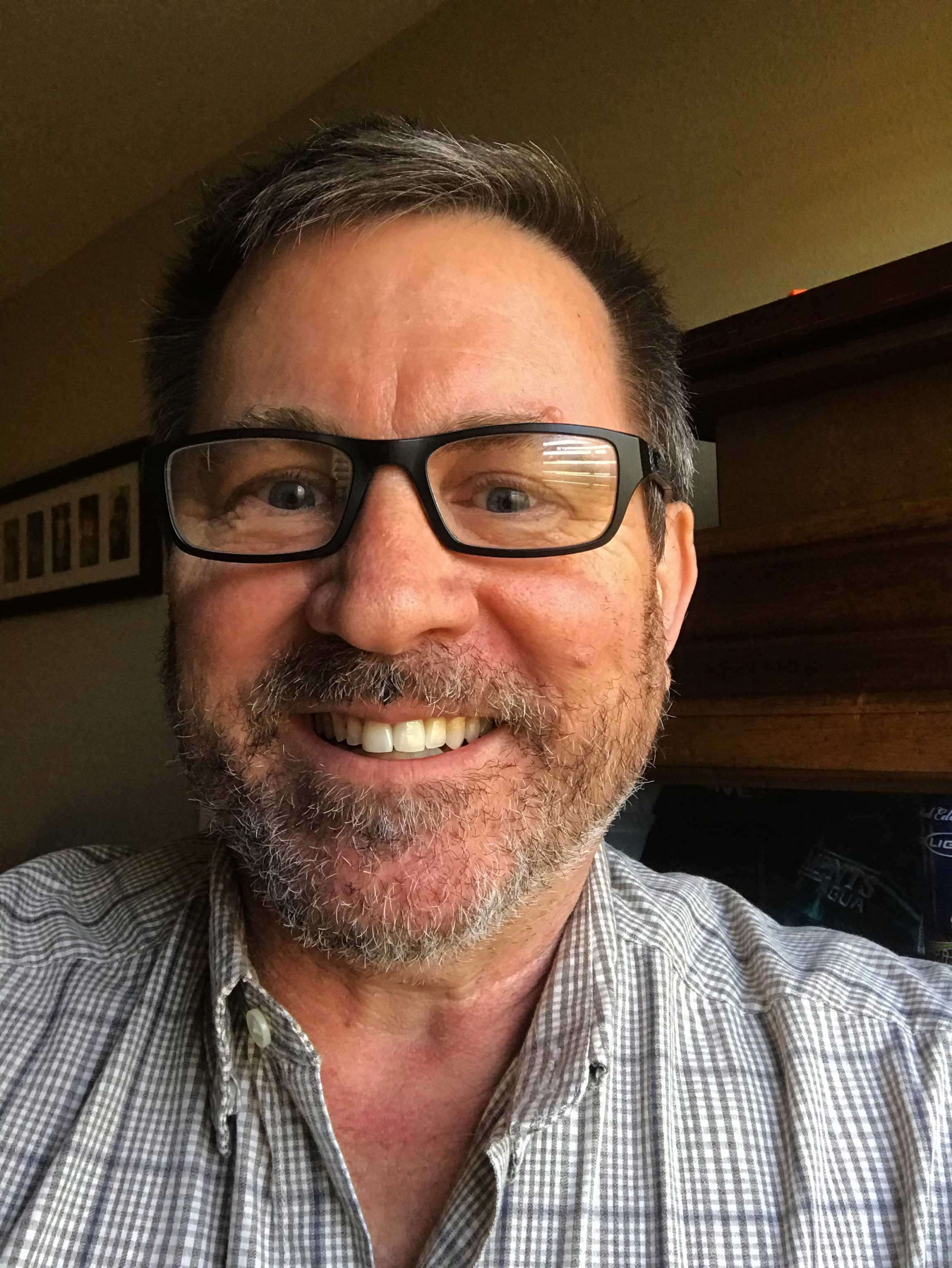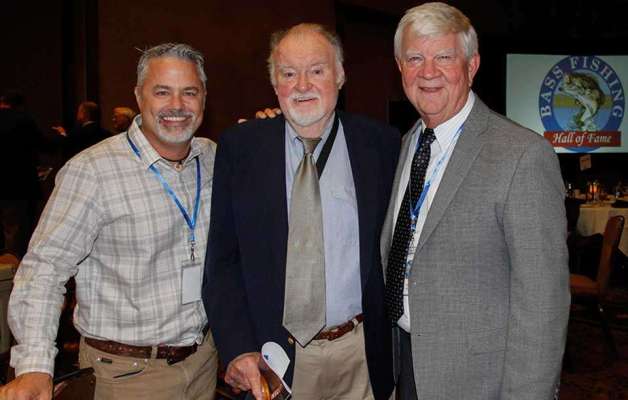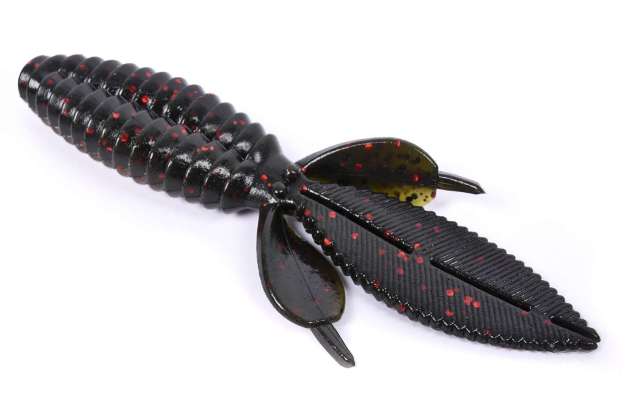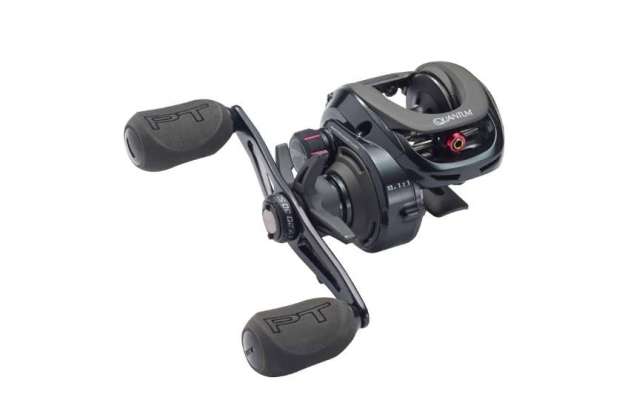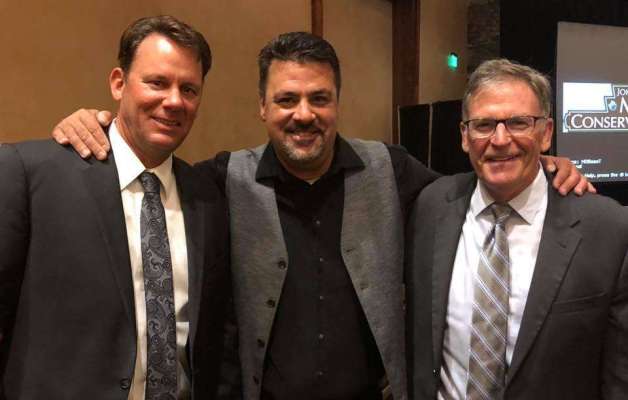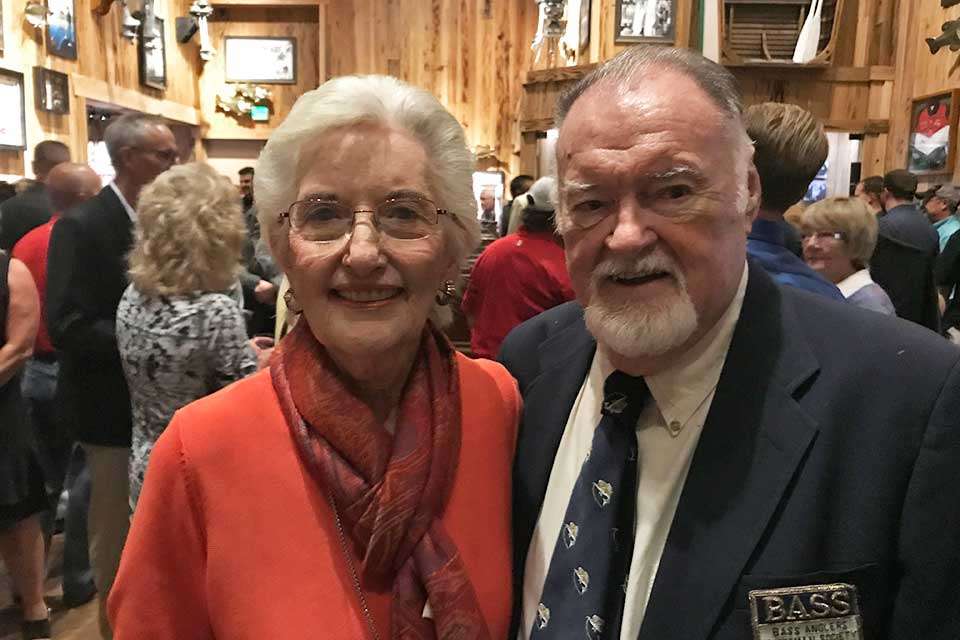
SPRINGFIELD, Mo. – Ray Scott’s first two employees at B.A.S.S. met again and reminisced about how the bass fishing organization got off the ground 50 years ago.
Employee No. 2 Helen Sevier was inducted into the National Bass Fishing Hall of Fame, and Bob Cobb, the first person Scott hired, was there in her support. As marketing director, Sevier helped double B.A.S.S. membership then later purchased the company with an investment group and served as president and CEO, where she grew the organization into an industry juggernaut that remains more than 500,000 members strong.
To close her induction speech, Sevier had everyone in attendance stand and applaud who she thought was behind the careers of most every person in that room – Scott.
“I’ve never seen anybody as passionate,” she said of him. “He’s the guy who brought it to the forefront to make it what it is today.”
Cobb, a 2002 inductee into the BFHOF, and Sevier chatted at the reception for the six new inductees, and both graciously offered some time to speak of their pioneer days. Scott made the first casts toward moving bass fishing into the national spotlight in 1967 after his famous brainstorm in a rainstorm, and B.A.S.S. is now celebrating its 50th anniversary.
Scott’s idea to promote tournament fishing on a national level turned into something much bigger. From what Scott began with, Cobb said it’s hard to believe where it’s gone.
“When Ray started, he had four names on a 4×5 card in a metal box,” said Cobb, who left as outdoor editor at the Tulsa Tribune to work for Scott. “And he recruited 106 fisherman from 13 states to come to Beaver Lake.”
That was Scott’s first event, and its success led him to begin signing up anglers to his Bass Anglers Sportsman Society in 1968. Cobb bought in almost immediately, and he and Scott got Bassmaster Magazine rolling and built membership up to around 9,000. Enter Sevier.
“When this lady right here joined B.A.S.S, she became what Ray called our ‘Break-Even Girl,’” Cobb said of the direct marketing specialist. “There’s a certain percentage when you’re doing direct mail, where you either succeed or fall on your face.”
When Sevier came on board in 1970, she helped more than double growth to around 20,000 in her first year and then exponentially for years.
“She’d test zip codes in an area, and other magic things on her Ouija board back there,” Cobb said. “Not only did she recruit hundreds of thousands of new members, but she renewed about 70 percent, which is unheard of in the magazine business.”
Cobb said Sevier fueled an impetus to join with successful campaigns, like challenging anglers if there were good enough to display the B.A.S.S. patch. A more addictive tactic was premiums.
“Instead of talking money for ads in the magazine, we’d take lures,” Cobb said. “We’d get the best winning lures – Tom Mann’s baits, Bill Norman’s baits. If you renewed your membership in B.A.S.S., you would get this renewal package including lures.”
Upgrading to a lifetime membership garnered a tackle bag that would replace multiple, expensive trips to the tackle shop. Cobb recalled a worker coming to Scott with the problem of a Texas lifetime member requesting another lifetime membership. Scott wanted to talk to this man to see what was going on.
“Ray asked him, ‘You want to renew again for life, but you’re already a life member?’” Cobb said. “He said, ‘Yeah, I just can’t wait to get that bag of goodies. I’ll spread them out of the kitchen table and stock my tacklebox. Cash my check.’”
Rumor is the man is signed up until the year 3000.
“They have B.A.S.S. memberships in heaven,” Sevier responded. “Once a member, always a member.”

Once a CEO, always a CEO
In her BFHOF acceptance speech in front of 400 or so of the industry’s movers and shakers, Sevier was not shy about her place in the sport and reminded everyone in the room about the people and actions taken to get the bass ball rolling.
“Today, I was deeply humbled and touched as far as seeing so many people I’ve known … and think about the impact they’ve made as far as fishing is concerned” she said. “It’s really meant a lot to me. It just touches me.”
Sevier joked that Scott and Cobb first came to see her because, “I’m so good looking.” They were really there to share their vision for bass fishing and wanted to see what her expertise could do for their fledgling organization. Yet neither knew she was familiar with who there were, and neither knew she already had a passion for bass fishing.
“One of the reasons why was my dad loved bass fishing better than anybody I’d ever seen in my life,” Sevier said. “He was into catch and release before it something that we coined and carried forward. He caught ‘em. But he never shared where he went, and he never shared what he caught them on.”
Sevier related a special childhood experience of her first catch. Her grandmother called bass “green trout,” but Sevier’s first bass was a particular point of pride for her father, and subsequently, for her.
“I watched him wade into the water when I caught my first bass,” she said, “and drag it out. He didn’t release it; he took it home and put it in the bathtub, and brought everybody around to look at the fish because it was the one Helen caught.”
With an investment group, Sevier purchased B.A.S.S. from Scott in 1986 and led the company for the next 15 years. In that time, she made great strides in promoting the sport, including helping found the American Sportfishing Association. She won numerous awards in the industry and was inducted into the National Freshwater Hall of Fame in 2004. Her crowning achievement might be creating the Bassmaster CastingKids program in 1991.
Sevier told a story about the first CastingKids winner. She said the boy had wet his pants at the competition, and later learned upon meeting his grandmother that was caused by failing kidneys also making him to go deaf. Sevier felt some pride when the grandmother told her that the boy was now a “somebody” entering the deaf school in Georgia because he had won the CastingKids.
“These things touch my heart deeply,” she said, adding B.A.S.S. has always been a people business.
“We had a great blend in terms of people. It was certainly about the staff and we worked with our heart, our passion, because it’s what we believed in,” she said. “Obviously, we were a service organization that was there to serve fishermen, whether that happened to be pro anglers or the average anglers.
“They were impacted by what you do; they were part of the B.A.S.S. family, a part of belonging. I just thank God for the opportunity to be of some service and have big ears … sit back and listen and try to figure out what we could do.”
Sevier left to a standing ovation, heralding Scott and his vision for an organization that has strived to create better bass fishing experiences for more than a half century.
“All we preached about was the simple fact that would this patch make you a better fisherman?” she said, adding her induction wasn’t really about her efforts. “It’s not about me. It’s about a sport.”

